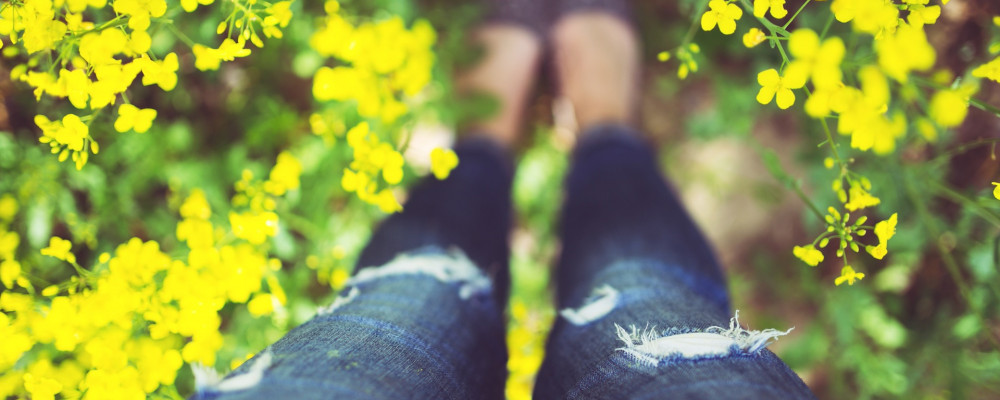
The Search For Sustainable Denim
Denim is known for its versatility, having started its life as a workwear fabric, but now pretty much always on trend in fashion. Jeans are a democratic item of clothing that everyone has, no matter what culture, background or class. Disregarding the differences in style of our denim garments, it is a notoriously unsustainable fabric that causes damage to the planet, so with it always being desired, that's a lot of impact.
The production process of conventional denim uses vast quantities of valuable resources and pollutes not just the land and air, but also the water as well. Fortunately, denim produced in this way is no longer our only choice on the market, with manufacturers, tech innovators and designers demanding more to suit their customers' requirements.
In this article, I'll explore how denim got its bad reputation and I'll share some secrets to assist you in the search for sustainable denim for your business.
(Note: updated in January 2020)
How denim got its bad reputation, and how to fix it...

Energy, water and pesticides
Denim has earned its poor reputation largely due to the inefficiencies of its production. This process starts with the growing of the cotton. As much as 7000 litres of water can be used to grow enough cotton to manufacture just one pair of jeans. According to the Earth Diva's Blog, the Levi’s plant in El Paso, Texas, uses 15% of the city's entire water supply (just to note, Levi's no longer manufactures denim clothing in the US, with the last American selvedge denim manufacturer Cone Denim closing it's plant at the very end of 2017. This in itself is bad, as it means lack of traceability and accountability in the supply chain once production moves overseas).
It doesn't stop there. More water is needed in the washing process. After adding harmful dyes to create that trademark blue hue we are all so accustomed to, the dirty water often ends up in local waterways.
Synthetic indigo dyes, which make up 90% of all the dyes used for denim production in China, contain many harmful toxins — cadmium, chromium, mercury, lead and copper - heavy metals that are carcinogenic. The cheapest synthetic dyes often contain sulphur which is also extremely damaging to health, especially those who work in the textile factories, and remains in waste water even after treatment. Cancer rates are incredibly high among textile workers, especially nose and bladder. Not to mention, synthetic molecules starve the water of oxygen damaging it for marine and wildlife.
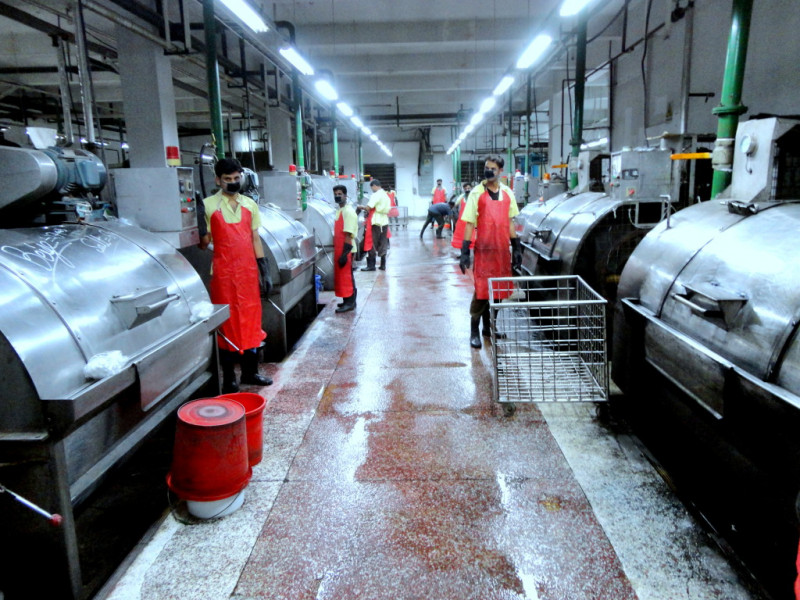
Then there's the pesticides. Growing conventional cotton requires the use of pesticides and fertilisers in order to ensure a high quality and high yield of crop, which can be deadly to the farmers on application to the fields (who regularly are denied the use of masks and protective clothing). These chemicals also cause massive issues when they run off (into all of that water I mentioned before) and can get into local water supplies (read more about the damaging effects of cotton). Up to one million people die each year from pesticide exposure and ingestion according to NIH Statistics. Cotton growing is also linked to high rates of suicide amongst male farmers due to debt. It's also worth noting that GMO cotton affects this most.
1 million people die each year from pesticide exposure and ingestion #shocking

Problems With Stone Washed Denim
The same is true of another ugly by-product of denim production - pumice dust - which pollutes the surrounding air. Pumice is used to create weathered or 'stone washed' denims. The denim is washed with pumice stones in a huge machine, so that's one problem, but the stones are mined and shipped to denim brands all over the world (generating not only earthly damage, but huge carbon emissions as part of the the shipping process too). The stone is broken down to weather the denim, resulting in lots of polluting dust entering the air around the factories.
Then there's sandblasting. The name speaks for itself - a horrible process that can be lethal to workers exposed to the sand and dirt (and all sorts of other) particles in the air. Many workers have developed silicosis (lung fibrosis caused by the inhalation of dust containing silica) from inhaling the particles. Thankfully many companies have started to refuse to use this process but there are reports of it still being used in China. Both of these techniques can be done by machine, but workers can also be seen using sandpaper and rocks by hand to achieve more "natural" wear.
Newer technology developments mean that many brands use lasers to create this worn effect, as well as rips and shredded areas. Using a computer-controlled system, lasers are targeted at individual pairs of jeans to burn away the fibres and dyes. Without the use of water, and minimal pollution, this is definitely the safer and less energy-consuming option.
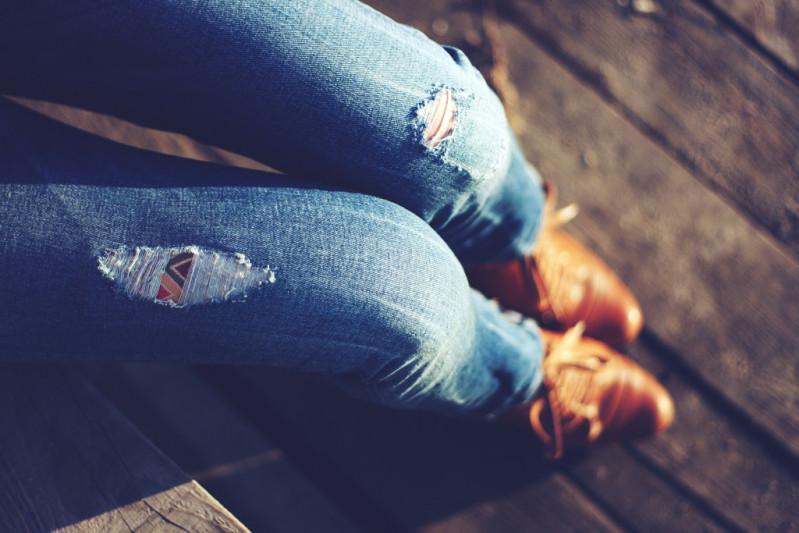
Discover Organic Denim Cotton
According to The Huffington Post’s Ellen Wallwork, many major denim labels are now working in the right direction to find more sustainable alternatives. The most accessible alternative to conventional denim is organic cotton denim.
Nudie jeans have always been a big player in organic cotton. They design for the life-cycle of the garment, meaning that they purposely sell untreated raw jeans and guide you through how to break them in to achieve that distressed look through day-to-day wear. They also provide a free repair service, a discount scheme for returning your old jeans for recycling/reselling, and have a pretty transparent production process.

Be like @nudiejeans & design for the life-cycle of a product #ecodesign

Patagonia has also committed to using only 100% organic cotton fabrics, as well as Fairtrade cut-make-trim and a significant reduction in their energy and water usage and CO2 output by using Archroma Advanced Denim Technology.
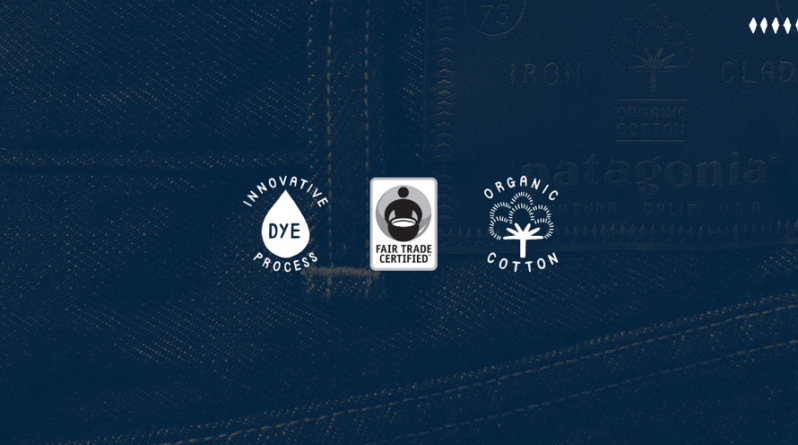
Levi's are making solid moves towards more sustainable denim and reduced water consumption by introducing their water<less fabric collection. This has already cut water usage in fabric production by 65% and in finishing by up to 50%. With innovations in processes such as using recycled water in the finishing of their denim they claim to be able to reduce the overall water usage by 95%!
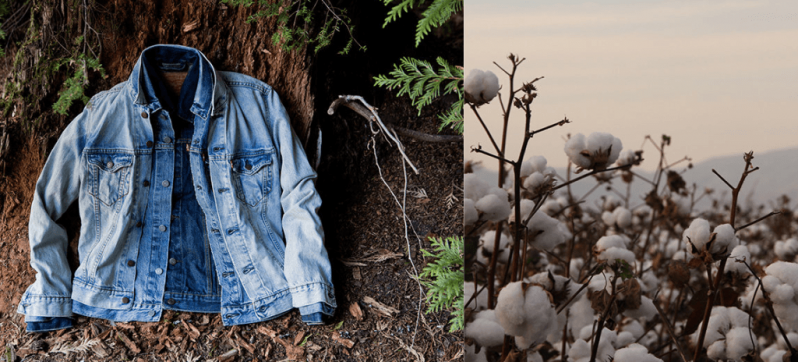
Opt For Raw Denim
My suggestion would be to avoid fabric that uses toxic dyes, which are rich in harmful chemicals.
As we’ve seen, washed denim causes terrible harm to the environment. If we started using unwashed or unweathered denim, i.e. ‘raw denim’, in designs we’d stop seeing those chemicals entering the water system, the air, and the lungs of factory workers. There would still be synthetic indigo in use, but without special 'trend' finishes, this pollution would be considerably reduced, and as with Levi's waterless technology, dyed water can stay within a closed loop. You can learn more about raw denim in this blog. Denim mills paving the way in sustainable denim are Italian mills Berto and Candiani, and Turkish giant Isko.
If we designed unwashed & unweathered, we'd solve half the #environmental issues

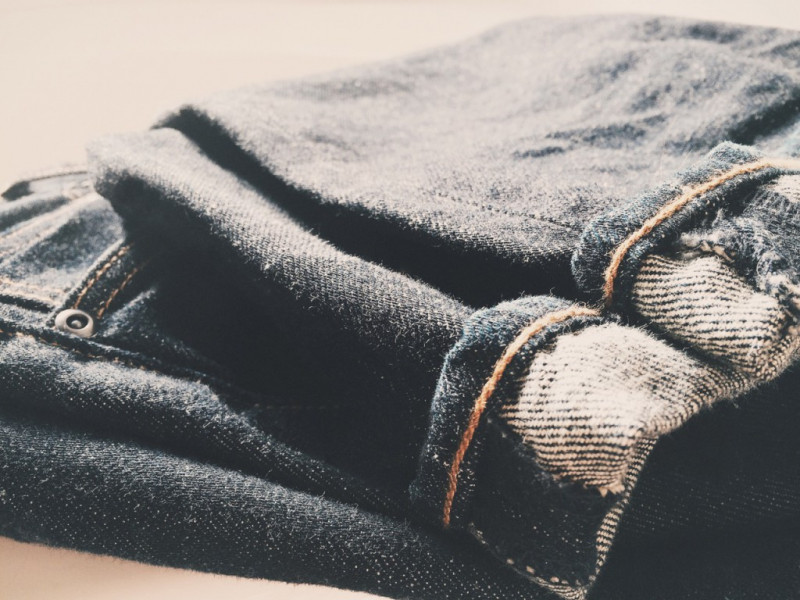
The latest raw denim trend is fabulous for the environment. Raw denim looks and feels different from stonewashed or distressed varieties. It’s stiffer than the denim you'll be used to and the colour is darker. However, in contrast to what you might be thinking, clothing made from raw denim is far more comfortable as it has a tendency to curve itself around individual body shapes. The result is a better fit that looks amazing while boosting the sustainability of your designs and your wardrobe. It connects you to your clothing in a way that bought washes cannot, as you can visibly see the wear that you have put in.
For other brands who use raw denim, as well as a lot of organic options, look to London-manufacturers Blackhorse Lane Ateliers, Wales-based Hiut Denim and Brighton-based husband wife duo Dawson Denim. You can also find British-woven raw denim from Heritage Fabrics based in Lancashire, and London Cloth Company's stupendous rope-dyed heritage loom denims.
Rethink Eco-Friendly Waste
Of course one of the best ways to make a fibre truly sustainable is to make it both organic and biodegradable and to focus on design for re-use. With re-use, or upcycling, we can make denim even more eco-friendly by recycling the fibres of raw denim waste, as this will have a direct impact on the amount of water and energy consumption involved in the production process.
In 2012, AG Jeans developed Advanced Denim in order to reduce waste by 87%. The company also aims to design patterns that maximise the yardage of their denim. Even the extra scraps from pre-consumer production are collected and strategically re-purposed in innovative ways.
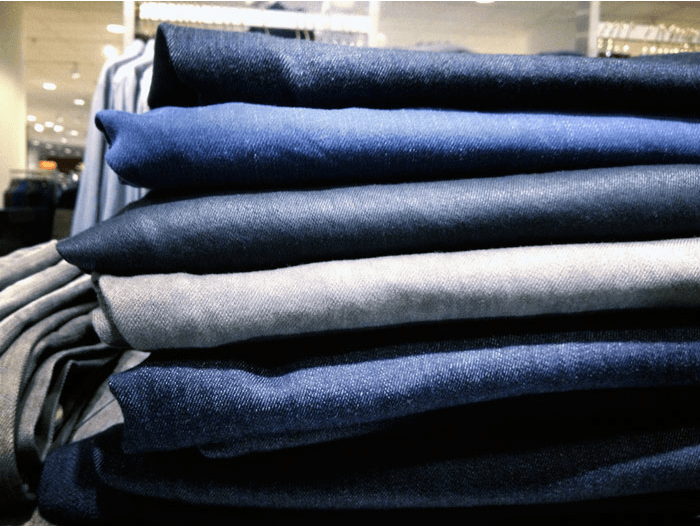
What To Look Out For In Choosing Your Denim
Let's review the characteristics you should look for while searching for a sustainable denim:
- The most classic sustainable denim will be a consistent blue colour due to the yarn-dyed cotton fibres and lack of washing or distressing. The hue can vary from dark to light blue denim as one might expect, but remember it is still synthetic indigo.
- Choose a denim that is strong and durable, with a sturdy weave structure will last a long time. Also consider the construction of the finished garment, as this will affect the pressure points and wear areas of the denim fabric.
- Remember that the most thrilling feature of raw denim is how it hugs the body and assumes the perfect shape (a real selling point for your customers!)
Like the organic cotton denim we sell at Offset Warehouse, many are hand-woven, so they may have irregularities that make them all the more unique. They also tend to be thicker and heavier because of the type of cotton used, although they still feel soft to the touch. These are naturally dyed and woven on small looms so have that lovely selvedge feature so sought after in raw denim circles.
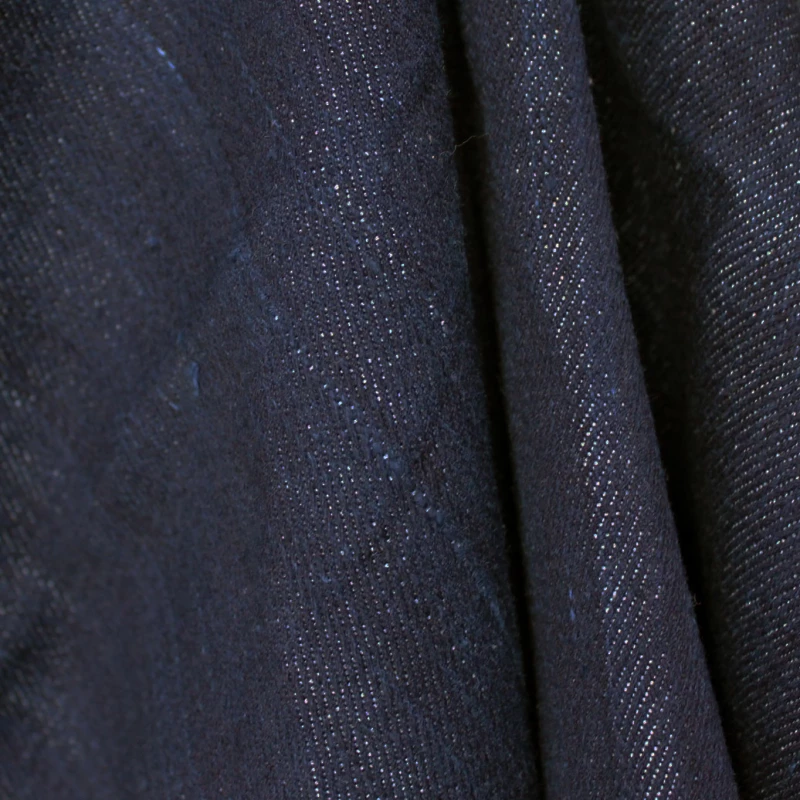
Let's protect the planet by choosing to use, design, and wear only raw and sustainable denim, preferably made with organic cotton.
For all the latest news and announcements and make sure you sign up for our newsletters!
And please do share our article (you can use our very handy tweet buttons throughout).
